Alzheimer’s patients are being recruited for a clinical trial that seeks to treat a form of bacteria believed to travel from the mouth to the brain, attacking healthy brain cells and causing or contributing to dementia.
By Tony Dearing | NJ Advance Media for NJ.com
Published May. 26, 2020
What’s bad for the mouth may be even worse for the brain.
Researchers are exploring the idea that a bacteria more commonly associated with gum disease may trigger Alzheimer’s by getting into the brain of older adults and damaging healthy brain cells.
If they’re right, that would offer a new explanation for the cause of Alzheimer’s — and better yet, a novel way to potentially treat it.
Medical clinics across the country are recruiting Alzheimer’s patients for a study that seeks to slow or halt their memory loss by giving them a medication designed to protect them from this bacterial attack on the mind.
Here in New Jersey, the Princeton Medical Institute already has enrolled eight patients in this promising clinical trial, and it’s looking for more volunteers. The study, known as the GAIN Trial, is open to adults diagnosed with mild to moderate Alzheimer’s between the ages of 55 and 80.
Dr. Jeffrey T. Apter, founder of the Princeton Medical Institute, says the GAIN study represents one of the new frontiers in Alzheimer’s research as science seeks to move beyond theories and approaches that have failed in the past.
“This is exciting; I think this is one that looks promising,” Apter says. “It’s a great trial for patients, and we’re participating in all subsections of the study. We can take as many people as we are able to screen.”
The study arises from earlier research that indicates a form of bacteria called P. gingivalis, which is known to cause periodontal disease, can make its way from the mouth to the brain in aging adults who are more susceptible to infections.
Studies on mice found that if this bacteria reaches the brain, it releases toxic proteins called gingipains, which can cause inflammation, damage neurons and lead to a build-up of plaque in the brain. All of these forms of neurological damage are associated with Alzheimer’s disease.
“This bacteria has been found in the brain of patients with Alzheimer’s disease,” Apter says. “That’s been known for some time, but hasn’t attracted much attention until recently.”
In fact, a study published last year concluded that more than 90 percent of people with Alzheimer’s have measurable amounts of P. gingivalis and its toxins in their central nervous system.
More recently, a new study offers further evidence of the ability of P. gingivalis to attack neurons in the brain and do the kind of damage that is associated with Alzheimer’s disease. Those findings will be published in the June issue of the Journal of Alzheimer’s disease.
The GAIN Trail is seeking to enroll some 570 people at more than 90 clinical sites in the United State and Europe. It is designed to test whether an experimental drug called COR388 can delay or halt further cognitive decline in Alzheimer’s patients by preventing the gingipains proteins from doing additional damage to neurons.
Two different doses of the drug are being tested. The drug comes in the form of a capsule and Apter says patients who volunteer for the trial and meet the criteria would take it daily for a period of 48 weeks, coming into the clinic every six weeks to be examined and get a new supply of medication.
The drug was developed by Cortexyme, a San Francisco-based biopharmaceutical firm. In an earlier Phase I study involving 24 healthy older adults and nine people with Alzheimer’s, the drug was found to be safe with minor side effects. The Alzheimer’s patients, who took the drug for 28 days, showed improvement in scores on memory tests.
“Based on the Phase 1 study, no major risks are expected,” Apter says. “The side effects were minor and clinically insignificant. They included headaches and dizziness.”
He says the patients enrolled in the GAIN Trial at his clinic so far have come in through a variety of avenues. “Some people had heard about the study, some were referred to us by the company,” he says. “Some just came in to be screened for this or other studies and were a good candidate for this one.”
The GAIN Trial is a combined Phase 2/Phase 3 study, an approach that allows it to potentially be fast-tracked for approval by the FDA if the drug shows results. Apter says the Princeton Medical Institute was chosen as one of the first sites for testing of COR388 based on its relationship with the company and its past track record.
Apter has been involved in research for every drug approved by the FDA for treatment of Alzheimer’s, including Namenda, which was approved in 2003. However, hundreds of clinical trials and billions of research dollars since then have not produced any new breakthroughs.
Much of that research has focused on trying to clear away the beta-amyloid “plaques” that accumulate in the brain of Alzheimer’s patients. After years of failed clinical trials, there’s growing concern that while these plaques are associated with Alzheimer’s, they may not be the cause of the memory loss and aren’t the right target for research.
Apter is among the clinicians who question the so-called “amyloid theory” and are seeking other answers. “I’ve been down on the amyloid theory for a while,” he says. “Definitely, the non-amyloid approaches are what really interest me. We are really keen on non-amyloid targets.”
People interested in being considered for the study can call the Princeton Medical Institute at (609)-921-6050 to learn more about the trial and be scheduled for a free cognitive screening.
Apter says getting a memory test can be valuable for any older adult who has cognitive concerns and there’s no obligation to enroll in a clinical trial. “We want to test as many people as we can,” he says. “We view it as a community service.”
The GAIN Trial is open to people who:
- Are between the ages of 55 and 80.
- Have been diagnosed with mild to moderate Alzheimer’s disease.
- Have a loved one or caregiver who can attend visits to the clinic, report on daily activities and oversee the taking of the medication.
Those who meet the criteria will get a full examination and medical tests, including an MRI. If they are selected for the study, they will go through a screening period of up to six weeks, then receive either the medication or a placebo for 48 weeks, followed by a safety follow-up period of six weeks.
Apter says in the case of volunteers who receive the placebo, after they complete the study period, they will have the option of receiving the medication for 48 months.
Participants who are not able to drive to and from study visits will be offered free transportation provided by Lyft, Apter says.
He adds that the Princeton Medical Institute office has remained open and continues to enroll participants for this and other studies. He says safety measures are in place to protect both the staff and patients from the spread of the coronavirus, including social distancing and the wearing of masks. People who are interested in the study but concerned about coming into the office are welcome to call for (609)-921-6050 more information.
Additional information about the study is available on the GAIN Trial website. The site includes a search tool to find the location of other study sites in the region and across the United States.



